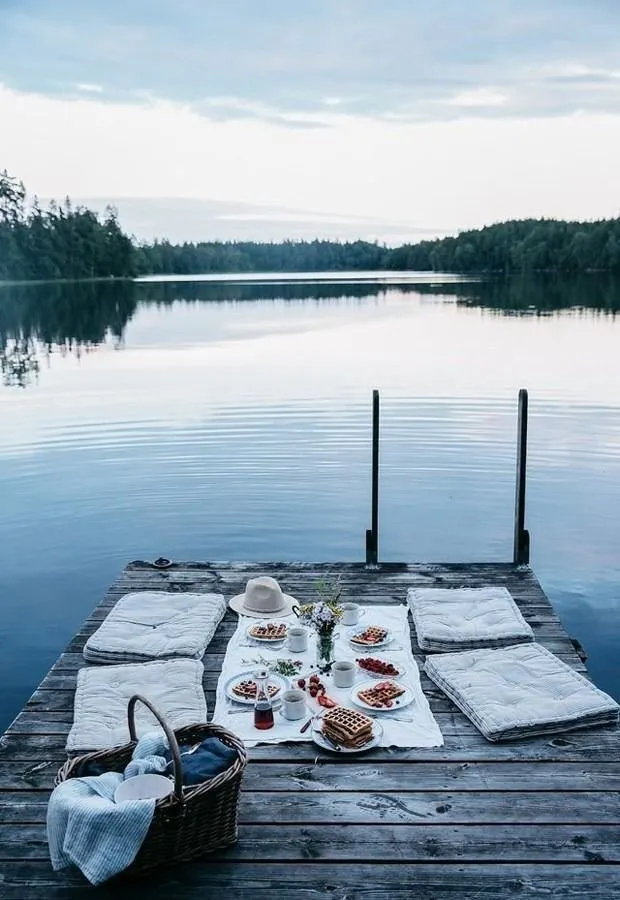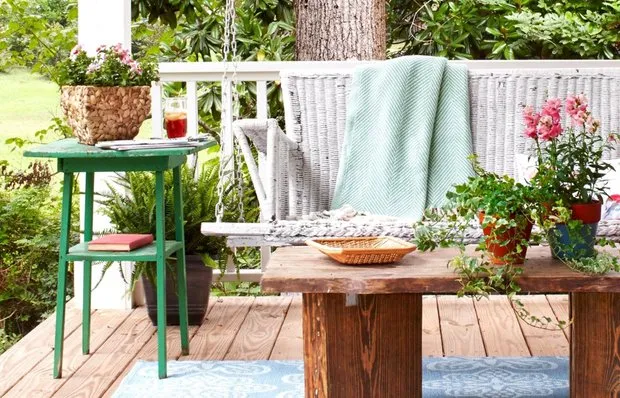Ants, mosquitoes and wasps: what irritates us in the countryside and how to deal with it
Drain wet areas of the plot
Ditches, puddles and even barrels - are favorite spots for mosquitoes. Where it's dry and hot, they don't appear. Mostly they live in forests and near water bodies, but even a small container with rainwater is enough to spoil your rest. Therefore, if you're only planning to buy or rent a house, evaluate its distance from water bodies and location relative to runoff: the lower the plot, the more mosquitoes there will be.
If they are already present
Repellents and fumigators will help. The first ones can be in the form of sprays, gels, creams and bracelets, while the latter release a substance when lit that repels insects. The most effective are electric ones. Plug them into the socket overnight.
The effectiveness of ultrasonic and UV repellers has not been proven. It's not worth spending money on them. Better to buy antihistamine gel: it will ease the suffering after bites.

Modernize the country toilet
Food crumbs, waste and fertilizers attract swarms of flies. So if you have an outdoor toilet, it should be filled in and moved further from the house, or better yet, think about a septic tank. Evaluate whether you need a compost pit on the plot. Decide what you need more: compost or peace of mind. Flies carry viral, parasitic, bacterial and intestinal diseases, so getting rid of them is not just a comfort issue.
If they are already present
Sticky tape and electric traps will help. Note that the first ones contain poison and can be potentially toxic, so they should be kept higher from children and animals and touched only with gloves. A more eco-friendly option is an aromalamp with clove, eucalyptus and anise oils. The same oils can also be dropped onto the lampshade, near the stove, and on windowsills.
Inspect the attic and everything under the roof
If there are many wasps on the plot, you need to find and destroy their nest: immerse it in a bucket or special solution for a day. Wasps are dangerous: if someone is allergic, they can die from swelling. Keep antihistamine medications and prednisolone ampoules at hand. If you found a nest and decided to destroy it, do so wearing thick leather gloves, sturdy clothing, protective mask and glasses. But it's better to call a special disinsection service.

Don't kill spiders
The belief that killing spiders brings misfortune is not without sense. These insects are completely harmless. They feed on other insects: thus, if you have spiders in your home, it means that clothes moths are living somewhere in the closet, bed bugs in the mattress or maggots in the garden. You can remove webs with a damp cloth wrapped around a broom handle, and for other insects as prevention, set up deterrents.
Don't trample ants - it's useless
Burning ant hills is also not advisable, especially dangerous. However, you need to get rid of them: ants damage flower beds and fruit trees and carry bacteria on their legs.
What to do if they are already present
1. Use chemical agents for pest control: aerosols and pencils.
2. Scare them with light traps.
3. Set up traps with toxic baits. Sold in special sections with repellents.

Checklist for prevention
Keep garbage containers and compost piles as far away from the house and rest areas as possible.
Install mosquito nets on windows. In any building, seal all cracks and gaps in floors, walls, and ceilings.
Monitor the correct watering system to ensure no waterlogged areas on the country plot.
Pools, wells and other water containers should be covered thoroughly where possible to prevent mosquitoes from laying larvae there.
Regularly clean rooms with damp cleaning, including hard-to-reach and hidden spots.
Clear up all crumbs and traces of food presence. Store food and sweets in tightly sealed containers and bags.
Regularly take out the trash, tie up food scraps in a bag at night.
Next to the house and pavilion, plant several small herb gardens with mint, lavender or basil. Hawthorn and pansies also have a repelling effect.
Need a renovation specialist?
Find verified professionals for any repair or construction job. Post your request and get offers from local experts.
You may also like
More articles:
 Apartment for Minimalist: 2-Room 44 m² in Sweden
Apartment for Minimalist: 2-Room 44 m² in Sweden How Designers Transformed Old Apartments (Photos Before and After Will Amaze You)
How Designers Transformed Old Apartments (Photos Before and After Will Amaze You) 10 Ideas for the Dacha Inspired by Scandinavian Huts
10 Ideas for the Dacha Inspired by Scandinavian Huts Build a House in 10 Weeks? Experience of a Couple from Australia
Build a House in 10 Weeks? Experience of a Couple from Australia Neighbor's Dog Barks Loudly: What to Do?
Neighbor's Dog Barks Loudly: What to Do? White Walls and Modest Budget: Apartment in Barcelona
White Walls and Modest Budget: Apartment in Barcelona How to Update Your Garden Before the Summer Season?
How to Update Your Garden Before the Summer Season? Short guide on saving money: how to do a renovation without spending too much
Short guide on saving money: how to do a renovation without spending too much